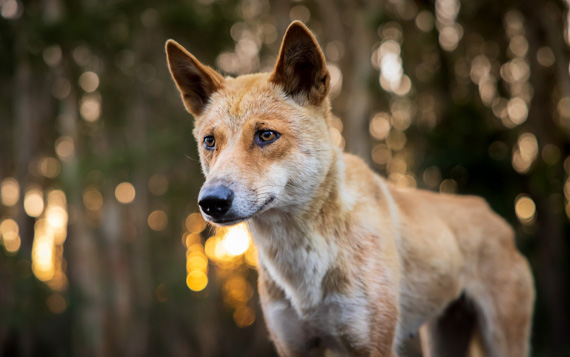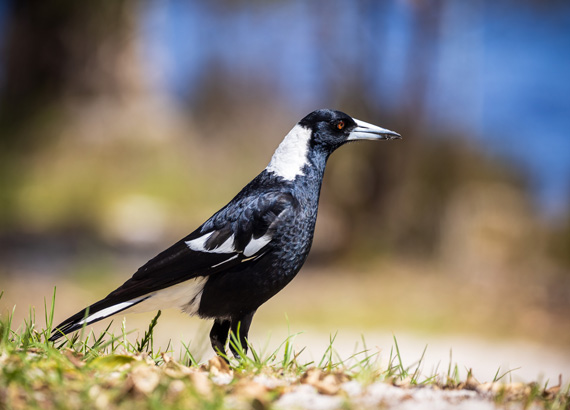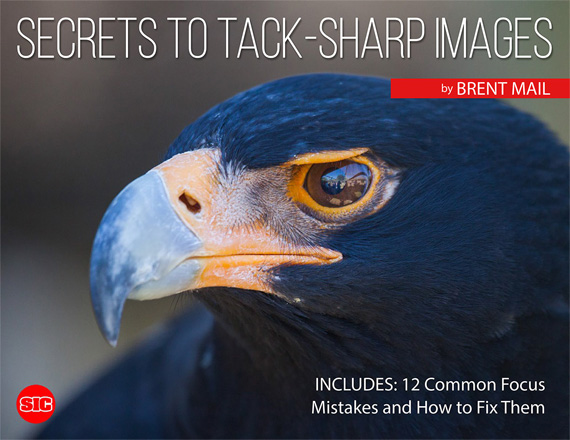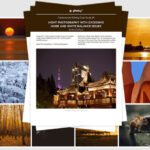This article comes to us from the author of Secrets to Tack-Sharp Images (currently 77% off) if you want to dig deeper for further training.
For many years I have been shooting with DSLR cameras – mainly because of the great autofocus these cameras provide. Every year I’ve tried out the latest mirrorless cameras and every year I’ve been disappointed with the autofocus accuracy.
That is until this year… 2021 – Stuck in lockdowns due to the global pandemic I upgraded to a professional mirrorless camera body.
I’ve only had this camera a few months but I must admit I am very impressed with the accuracy and performance of the auto-focus so far.
I no longer need to use the focus-and-recompose method when I’m photographing portraits or wildlife due to the human and animal eye-detect-auto-focus built into this camera.
Most of the time the camera gets the focus right but there are occasions when I need to switch back to my trusty focus methods to make sure that I get tack-sharp images.
TIP: when you upgrade to a new camera system or a different manufacturer, make sure you spend enough time getting to know the new tool in your hands.
There are great benefits to knowing your tools, even in the dark when you have no flashlight – knowing where the different dials, buttons and settings are could mean the difference between getting the shot or not.
Countless times I’ve grabbed my camera spent a maximum of 3 seconds dialing in the right settings and then taking the shot – no time to figure things out when you’re on the run.
Animal-Eye Auto-Focus: What I love about the new mirror-less cameras is the eye auto-detect. Here I photographed a wild dingo I’ve named “One Sock” at sunset. I used the flip-out-screen to lower the camera to the ground and then relied on the autofocus to detect and focus on her eye. Notice that beautiful shallow depth of field as well as the sun peaking through the vegetation behind her. An image like this would have been very difficult to create before this technology was available.
This dingo image is included in the newly updated Secrets to Tack Sharp Images which covers the 12 focus mistakes most photographers make and how to fix them.
Here is another example of where I used animal-eye-auto-detect to make sure that my focus was tack-sharp. This Australian Magpie was hunting for insects in the grass close to the dingos I was photographing. I was already lying on my belly to get the very perspective and was shooting with a telephoto lens at 350mm focal length.
These magpies can be very aggressive at certain times of the year where they swoop you if you enter their territory. Luckily the magpie swooping season is over now and I can relax a little bit without having eyes in the back of my head.
What I really like about this image is that the sun is bringing out the colours and textures in the magpie’s feathers and in it’s eye. As you probably already know when it comes to photographing wild animals and birds – it’s all about the eye. That’s why us photographers go to great lengths to make sure that the eye is super sharp, and sometimes we need to pop in some fill flash too.
This new animal eye detect auto-focus is very handy in situations like this. Have you tried out this technology when you’re photographing animals? Let me know in the comments below.
For Further Training:
Are you tired of having your favorite photos spoiled by focus issues? This guide from professional Australian landscape photographer Brent Mail was written to help. It is currently 77% off if you want to check it out.
Take a peek inside the in-depth eBook containing heaps of secrets to help you overcome the 12 most common focus mistakes that spoil photos.
Deal ending soon: Secrets to Tack-Sharp Images Guide at 77% Off
Like This Article?
Don't Miss The Next One!
Join over 100,000 photographers of all experience levels who receive our free photography tips and articles to stay current:









Leave a Reply